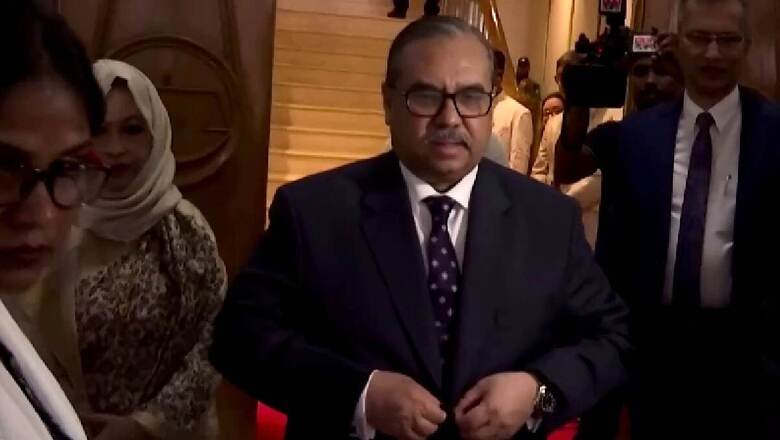
views
Bangladesh’s former chief justice Obaidul Hasan resigned in the face of student protests on Saturday and Ashfaqul Islam has been chosen to become the interim chief justice of the nation’s apex court.
The student protesters led by the Anti-Discrimination Student Movement gave an ultimatum to Hasan and judges of the appellate division to resign within 1pm Saturday.
The student protesters began their demonstration at the Supreme Court premises in Dhaka and similar protests were also organised outside Chittagong city’s court premises.
Asif Mahmud Sajib Bhuiyan, coordinator of anti-discrimination student movement and advisor to the Bangladesh youth and sports ministry, on Saturday morning called for the resignation of former chief justice Hasan in a social media post.
The call for his resignation came soon after Hasan had summoned a full court meeting which judges from both divisions of the Bangladesh supreme court were told to attend.
Asif Mahmud Sajib Bhuiyan in his social media post said: “The Chief Justice of the Supreme Court, who supports fascism and is involved in various misdeeds, has called a full court meeting without any discussion with the government. Any kind of conspiracy by defeated powers will not be tolerated. Lawyers have already gathered to protest against it”.
“We had already called for the resignation of the chief justice. Taking a stand against the students and inciting them will have to bear dire consequences. Resign (from) the post of Chief Justice immediately and unconditionally, and stop the full court meeting,” Bhuiyan said in his post.
Justices M Enayetur Rahim, Abu Zafar Siddiqui, Jahangir Hossain, Md. Shahinur Islam and Kashefa Hossain were among the five judges of the appellate division who resigned.
Hasan said that he resigned because there were threats against Bangladesh supreme court, its justices and workers. “I have taken the decision to save the judiciary. There have been threats of attacks on the supreme court. The apex court’s judges have also been issued threats. There are reports of looting in houses of judges as well,” he said.
Bangladeshi news outlet Prothom Alo highlighted that when the protests broke out initially Hasan had questioned the protests.
“Why are there movements out there on the streets? Will you change the judgement of the high court, the judgement of the supreme court by applying pressure through these movements and protests?” he had said.
On June 5, 2024, the Dhaka High Court ruled that the 2018 government decision to abolish the quota was illegal and reinstated it. The government appealed the ruling in the Supreme Court, and protests erupted on July 1. On July 4, the Supreme Court upheld the High Court’s decision. However, on July 11, the Supreme Court suspended the ruling pending a hearing on the government’s appeal.
Even though the nation’s top court ruled the decision to reintroduce job quotas was illegal, protesters claimed its verdict fell short of protesters’ demands to entirely abolish reserved jobs for children of “freedom fighters” from Bangladesh’s 1971 independence war against Pakistan.




















Comments
0 comment